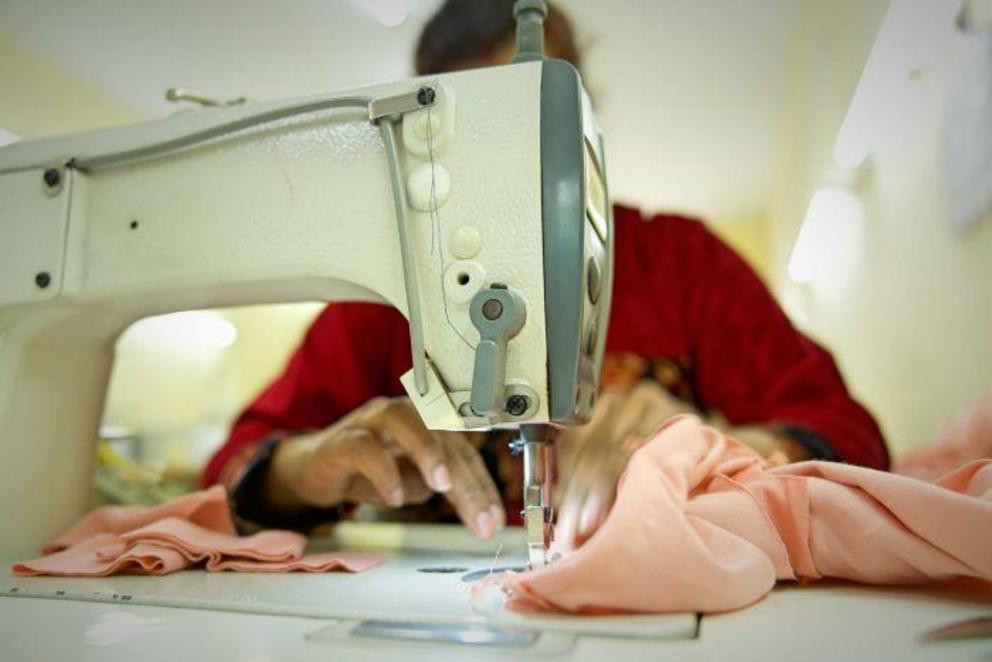Lululemon factory workers allegedly subjected to physical and verbal abuse in Bangladesh
Lululemon leggings retail for about $120, less than its average Bangladeshi worker makes a month.
At least one item of clothing in your closet probably came from a factory in Bangladesh.
Key points:
- Women workers in Lululemon's Bangladeshi factories have said they have been called "sluts" and "whores"
- Lululemon says it has opened an investigation in response to the latest allegations
- Low-paid women make up about 80 per cent of factory workers in Bangladesh
The nation's apparel export industry is booming despite a slew of horrific workplace accidents and evidence that worker maltreatment is widespread in the factories that supply both high-end and high-street fashion brands.
Billion-dollar activewear brand Lululemon is the latest company to be implicated in allegations of the abuse of women workers in the Bangladeshi factories that supply its clothes.
A new report from The Guardian found that female workers who make the brand's clothing in Bangladeshi factories are subjected to physical and verbal abuse.
It found workers were commonly humiliated with sexual slurs levelled at them by their managers.
Women workers told the outlet they were called "sluts" and "whores".

Lululemon has contracted third parties to audit some Asian factories in its supply chains.
The authors also interviewed workers who said they had been beaten by managers and made to work long hours in gruelling conditions to meet targets.
A pair of Lululemon leggings retails for about $120 in Australia — just a little less than the average worker in its Bangladeshi supply chain earns in a whole month.
Women in developing countries make up the majority of the factory labour force that makes garments for global fashion brands including Lululemon.
The organisation Human Rights Watch has also documented sexualised threats against women by factory managers and supervisors in Bangladesh.
Lululemon has contracted third parties to audit some Asian factories in its supply chain, but more often it conducts in-house audits.

Bangladesh's garment industry employs about 4.5 million people.
Human Rights Watch has criticised these kinds of audits, saying they are often conducted in mixed-gender groups and on-site, meaning women workers do not feel safe enough to disclose abuse, particularly when it comes to culturally sensitive topics like sexual harassment.
Lululemon said it has opened an investigation in response to the latest allegations, and said it currently has no orders placed with the factory in question.
Aruna Kashyap, senior counsel in the women's rights division at Human Rights Watch, said Lululemon should "use this opportunity to assess its own brand purchasing practices and see how conducive they are to promoting labour rights compliance in its supplier factories".
"Brands like Lululemon that profess to care about workers should track and report to its consumers about how many of its supplier factories have unionised workers, how many have collective bargaining agreements, and what business incentives they provide to such factories.
"Instead of wasting resources on another investigation of labour abuses in the factory, Lululemon should use this opportunity to design a program to prevent and respond to worker violence and abuse in its factories.
"Such a program should involve local unions and women's rights groups," Ms Kashyap added.
Low-paid women make up bulk of factory workers
The garment industry has driven huge economic growth in Bangladesh in recent years and employs about 4.5 million people.
The country's GDP growth of more than 8 per cent now outstrips that of its much larger neighbour, India.
But it is low-paid women who make up about 80 per cent of the factory workers, while men typically hold management positions.
Advocacy for international standards for the sector began after the eight-storey Rana Plaza garment factory in Bangladesh collapsed, killing 1,100 people and injuring 2,000.
Lululemon has its own internal Vendor Code of Ethics, which is says promotes ethical sourcing of its products.

